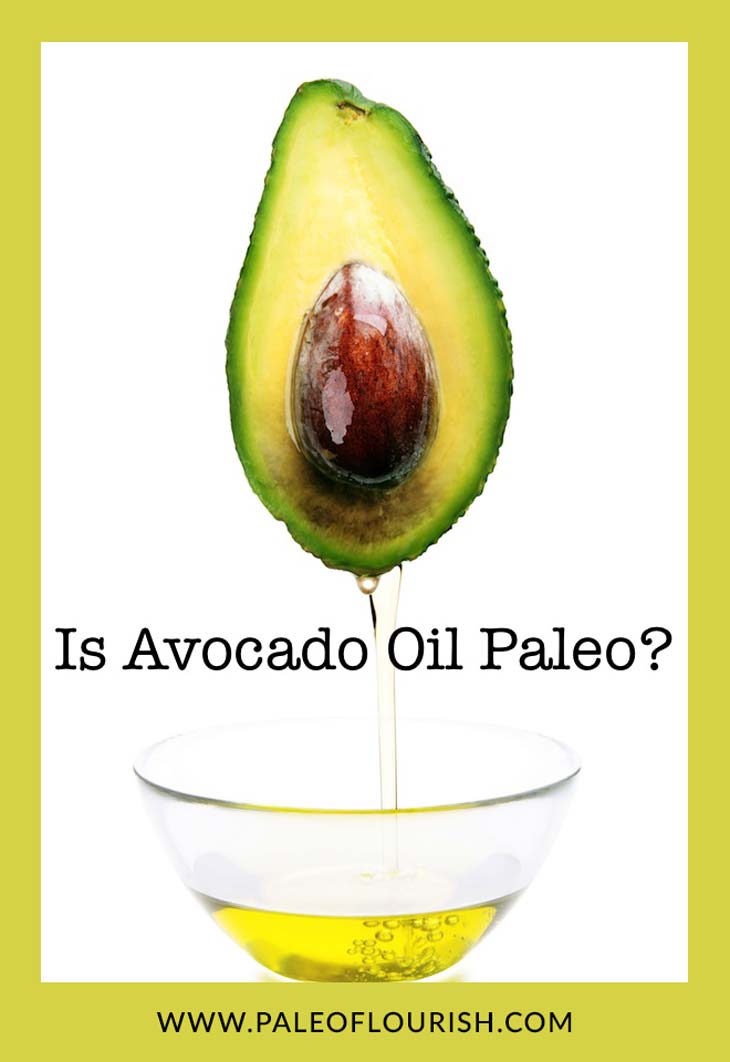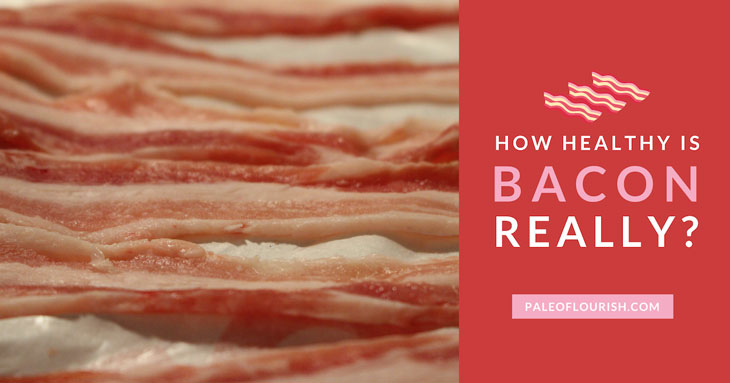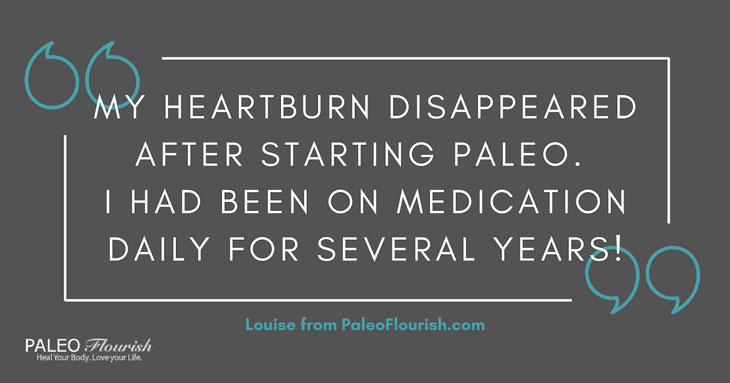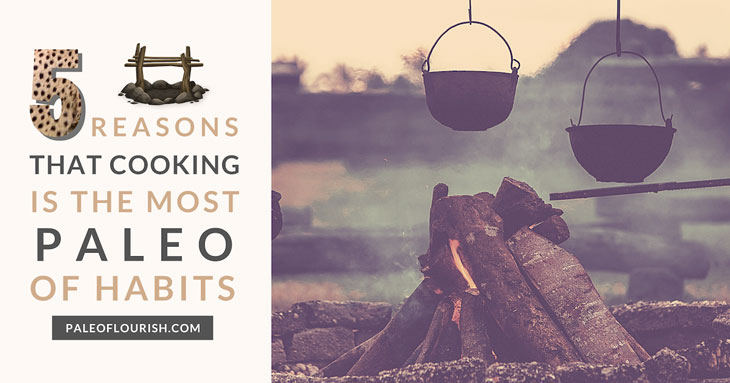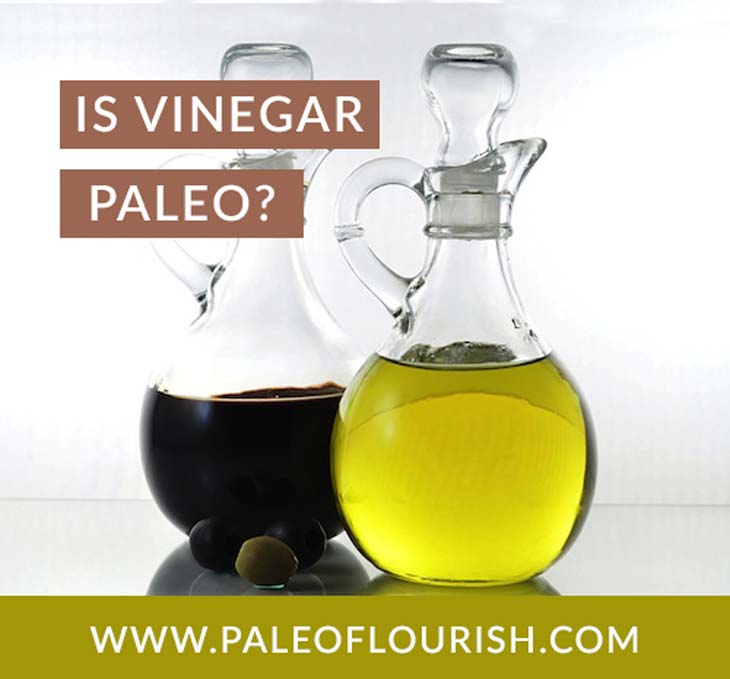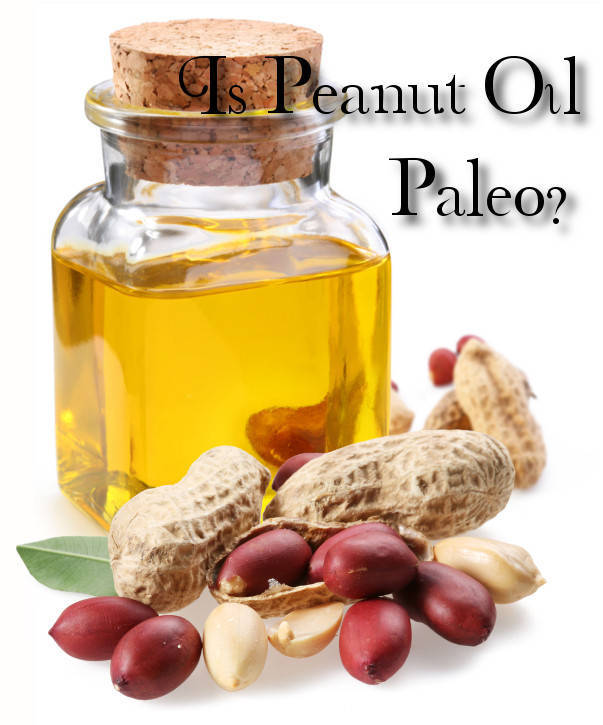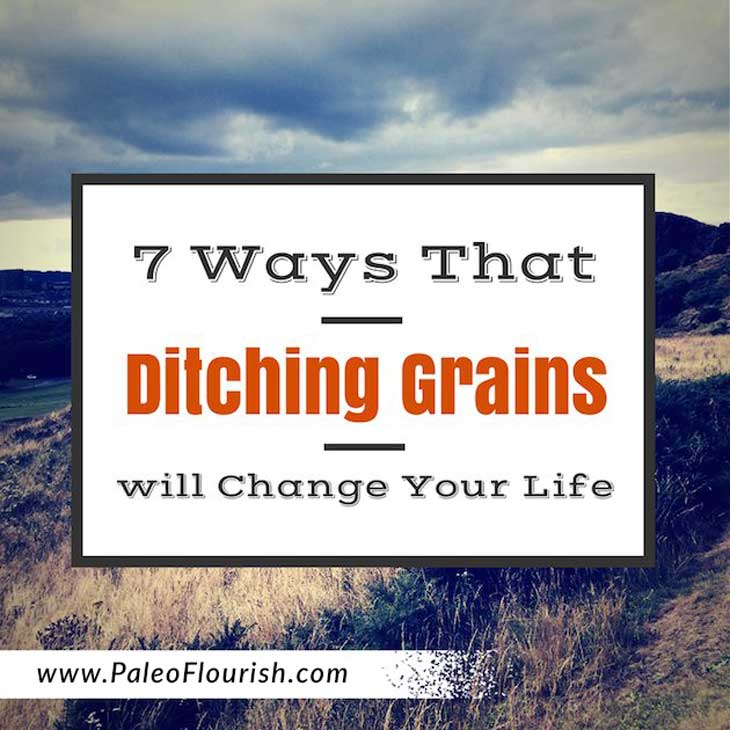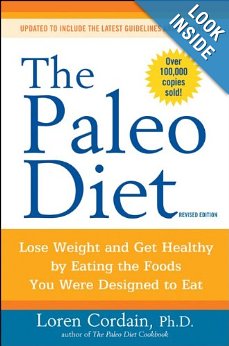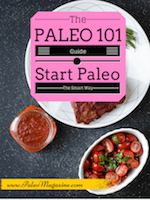
Is Avocado Oil Paleo?
What is Avocado Oil?
As the name suggest, this is simply the oil pressed from avocados. Originally, the oil was extracted for cosmetic uses (it gets absorbed by your skin very quickly), but now it’s become a popular cooking oil due to its health benefits and high smoke point (often over 400F or 200C).
Like most oils, extraction of the oil can result in a good unrefined form and in a bad refined form.
For use in cosmetics, extraction is done by chemical solvents to get a more refined oil. As the introduction a 2004 study stated:
“The residues left by such solvents represent a risk to the consumer’s health; also, the temperatures applied during the recovery process may destroy some of the nutrients in the oil.”
 For most food purposes, cold press techniques are now employed by most producers. This often involves putting large amounts of pressure on the avocado flesh to separate the oil from the water and the solids. However, it’s not a very high production process, which is why there are still inventors looking to improve the productiveness of the process.
For most food purposes, cold press techniques are now employed by most producers. This often involves putting large amounts of pressure on the avocado flesh to separate the oil from the water and the solids. However, it’s not a very high production process, which is why there are still inventors looking to improve the productiveness of the process.
And you can experience for yourself just how little oil comes out of one avocado with this do-it-yourself tutorial on how to extract avocado oil at home.
Is Avocado Oil Paleo?
Quick Answer: Yes
Continue reading
Just How Healthy is Bacon Really?
Bacon is like a lightning rod. Talking about it too long will probably have Zeus throwing down lightning bolts at me.
No kidding – bacon is hugely popular in the Paleo world. It’s undeniably delicious and makes just about any meal better.
I think we can all agree that the conventional reasons for shunning bacon are wholly without merit. Saturated fat and cholesterol are not things that we need to worry about. They’re integral parts of healthy, whole Paleo foods.
Still, even in the Paleo world, bacon occasionally gets a bad rap, for a variety of other reasons:
Problems with Bacon
1. Nitrates and Nitrites. This is the most common reason that many Paleo folks worry about their bacon consumption. Nitrates and nitrites are basically preservatives and they can be artificial (cured bacon) or natural (in the form of sea salt or celery juice, most commonly) (uncured bacon). However, whether artificial or natural, it’s the same thing. Most importantly, all current scientific research indicates that nitrates and nitrites are – if anything – likely to be beneficial rather than harmful (see here, here, here, and here). In fact, most of the nitrates and nitrites we get are produced by our bodies. Note, buying either cured or uncured bacon will contain nitrates – the nitrates in uncured bacon are just from natural forms like celery juice.
Continue reading
How Do I Cure Acid Reflux, Heartburn, and/or GERD?!?
Unfortunately, there is not a simple answer to this question. There are treatments that work for a lot of people, but never for everyone. But understanding your problem will help you treat the cause (rather than just the symptoms using medication).
So keep on reading to learn about what causes acid reflux, heartburn, and GERD, and how you can cure these frustrating symptoms.
The best thing to do is to consult a doctor who can properly diagnose and treat these sorts of issues. Of course, we know that many doctors stick to the conventional wisdom and just try to pump you full of drugs, so here are our brief thoughts on this topic, which affects millions of people.
What Causes Acid Reflux, Heartburn, and/or GERD?
Most doctors think that acid reflux and heartburn are caused by too much stomach acid. They believe this because stomach acid in the esophagus is largely responsible for much of the damage and discomfort that accompanies heartburn and acid reflux.
However, the true causes of these conditions are much more likely related to too little stomach acid, bacterial overgrowth, and carbohydrate malabsorption. These may be related to each other (low stomach acid probably leads to bacterial overgrowth, which probably leads to carbohydrate malabsorption). And in the end, this series of problems leads to gas and pressure, which causes food and stomach acid to back up into the esophagus.
Continue reading
5 Reasons That Cooking is the Most Paleo of Habits
WHEN YOU FIRST START A PALEO DIET, there are a million things to think about and read about.
Stop eating grains. Avoid dairy. Eat grass-fed meat. Avoid processed sugar.
Lots of good advice.
But there’s one very basic thing that no one seems to tell you…
Cooking is the BEST Paleo habit you can develop.
A History Lesson…
Although some humans were able to control fire about 400,000 years ago, many weren’t able to do so until about 100,000 years ago. That means, for most of history, humans ate raw food.
Personally, I don’t think means that we need to eat raw food. Cooking is not very detrimental, and I really like the safety and hygiene that comes with cooking.
And yet, for the past 30-40 years, there has been a steady decline in time spent cooking. As of 2011, the average American spent just 31 minutes per day on food preparation.
Traditional cultures spend a lot of time preparing their food, but TV dinners, restaurants, and pre-packaged meals have largely changed that.
I, like many folks, don’t think that change has been for the good overall.
Here are 5 Reasons Why It’s Incredibly Important to Cook on a Paleo Diet
Is Vinegar Paleo?
Some History on Vinegar
Vinegar has been filling bottles since the Babylonians crafted it from fruits in 5,000 B.C. and has been used as both a flavoring and a preservative. Created by using bacteria to break down ethanol from foods into different components, vinegar also contains many different compounds. Chief among these compounds is acetic acid, which gives vinegar its unique characteristics. Anything that contains ethanol can be used to make vinegar, including, wine, champagne, cider, or even beer. In addition to its characteristic acetic acid, other components in vinegar include vitamins and minerals and a variety of distinct flavor compounds.
In addition to making our food tasty, however, vinegar also offers a few health benefits.
Continue reading
Why All the Confusion? (aka, Is Peanut Oil Paleo?)
What is Peanut Oil?
As the name suggests, this is the oil that’s derived from peanuts. (It is also known as groundnut oil or arachis oil.)
In the US, peanut oil is commonly used in restaurants (think Chick Fil A if you’re from the South), and it’s often touted for its health benefits.
Peanut oil typically has:
— 46% Mono-unsaturated fats
— 32% Poly-unsaturated fats, and
— 17% Saturated fats
So, it’s definitely not as high in monounsaturated fats (MUFA) as an oil like olive oil (which has typically over 70% MUFA) and yet has a ton of polyunsaturated fats, which can be easily oxidized and cause the oil to go rancid.
Another key reason for why peanut oil became so popular is its high smoke point — 446F (230C). This is higher than an oil like olive oil, whose smoke point typical ranges between 338-446F (170-230C). And the more refined the peanut oil (or any oil for that matter), the higher its smoke point will be.
Is Peanut Oil Paleo?
Paleo Is NOT for Everyone: 7 Reasons it Might Be Right for You
I’ve struggled with staying in shape for most of my life. Every morning when I’d wake up, one of the first thoughts to cross my mind was how much I hated being fat and out of shape. I thought about it probably 10 times as much as I thought about anything else during the day.
And here’s the scary part – this was after I had lost 50 pounds via running and eating very low calorie. I wasn’t obese at that point in my life, but I was nowhere close to where I wanted to be. I struggled every day to get a little bit more in shape.
Any of that sound familiar? Ever felt like losing weight and staying in shape was a constant struggle?
Well, I found the Miracle Solution, and for just $9.95 plus shipping and handling, you too can eat anything you want, sit in front of your TV all day, and have six-pack abs…..
Yeah. Right.
I didn’t find a miracle solution, and you’re not going to either. What I did find was a diet and lifestyle that made staying in-shape and healthy a lot easier and a lot more fun.
I think everyone should go Paleo, but the choice is yours. If you are in a mood to be persuaded, then keep reading (otherwise, get lost!):
7 Reasons You Should Go Paleo
5 Essential Tips for Creating Healthy Paleo Habits
 Have you ever felt like you’ve been trying forever to reach the same goal? Like you’re constantly struggling to stay on track – occasionally making progress – but often stalling or regressing? Maybe you lose a little weight only to regain it, or you eat healthier for a while only to cheat for a week or 2?
Have you ever felt like you’ve been trying forever to reach the same goal? Like you’re constantly struggling to stay on track – occasionally making progress – but often stalling or regressing? Maybe you lose a little weight only to regain it, or you eat healthier for a while only to cheat for a week or 2?
Most of us don’t like to talk about the constant ebb and flow struggle to eat healthy and get in shape, because it makes us feel like failures for never reaching our goals. It’s a situation that almost everyone faces, but unfortunately, it’s an issue that very few people solve.
I’d go so far as to say that it’s the normal condition for most people to never actually reach 99% of their health and fitness goals.
Whether you’ve been trying to lose 50 pounds for the last decade or have been dreaming about having six-pack abs since high school, it’s frustrating, depressing, and painful to never achieve our long term health goals.
There’s a Missing Link
7 Proven Ways that Ditching Grains will Change Your Life
Sometimes we have the remarkable ability to convince ourselves that something is fantastic when we actually hate it.
For instance, when I was 19 or 20, I had just lost a lot of weight. My diet (based on a couple years of reading and researching mainstream health information) generally consisted of eating a lot of low-fat, high-fiber whole grains. Hello Fiber One.
 And it worked (sort of). I worked my butt off every day by running or playing sports, and I religiously avoided almost all high-fat, high-calorie foods. I managed to stay relatively slim (although always with a few extra pounds of fat that I could never completely shed). And yet…
And it worked (sort of). I worked my butt off every day by running or playing sports, and I religiously avoided almost all high-fat, high-calorie foods. I managed to stay relatively slim (although always with a few extra pounds of fat that I could never completely shed). And yet…
I hated every minute of eating that way.
I was constantly hungry and tempted to cheat on my diet.
Still, at the time, because I had just lost a bunch of weight, I somehow convinced myself that I loved eating and living that way. I remember telling everybody about it.
Learn to Enjoy Life (and Stop Eating Grains)
3 Things the Most Successful Diets Have in Common (How to Stop Cheating)
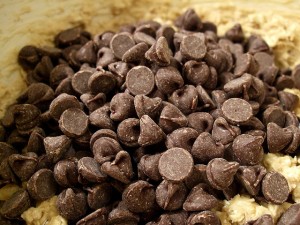 I ate chocolate chips for a week. (Not just chocolate chips, but I had them pretty much every day.)
I ate chocolate chips for a week. (Not just chocolate chips, but I had them pretty much every day.)
And I don’t eat chocolate (I know this is sacrilegious to many of you, but chocolate honestly makes me feel terrible – bloated, tired, and generally bad). But I did eat chocolate. Just over a week ago, for 7 or 8 days.
It wasn’t worth it. It never is, no matter what food I “cheat” with.
But we all cheat. Even superstar athletes whose job it is to be in incredible shape will cheat on bad food. Most of them, at least.
And bloggers? Let’s just say that I’ve hung out with a few of them. Some are better than others, but we all cheat.
Continue reading
Is Microwaving Paleo?
Cavemen clearly didn’t have microwaves but that isn’t necessarily a reason for us not to use microwaves.
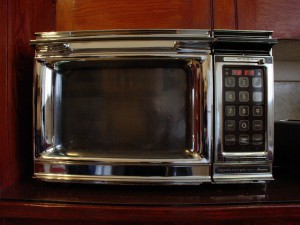
Below, I judge microwaves using the same basic standards I judge foods: toxicity vs. nutrients.
Is Microwaving Toxic?
There are 2 main concerns here:
1. Is Microwave Radiation from a Microwave Oven Dangerous?
No.
Microwaves are a form of radio waves and are naturally occurring (it’s a part of the electromagnetic spectrum).
Unlike some other forms of radiation (like x-rays and gamma rays), microwaves are not ionizing and have not been linked to cancer in the same way that high doses of x-rays and gamma rays have been.
In addition, very tiny amounts of microwave radiation ever escape from your modern microwave oven.
The oven is made of metal, which reflects the microwaves rather than letting it pass through its walls (hence why it’s bad to put anything metal into microwave oven). Even if there are small gaps in the seal around the microwave oven door, microwaves are of such long wavelengths that it’s highly improbable any microwaves will escape through those tiny gaps.
2. Does microwaving introduce radiation into my food?
No.
Microwaves work by jiggling the water molecules in the food you’re heating. That’s why you shouldn’t ever microwave dry food (e.g., something that’s been dehydrated).
Once the microwave is switched off, there’s no residual radiation in the oven or in your food.
Does Microwaving Cause My Food to Lose Nutrients?
Cooking any food using any method will cause the nutrients available in the food to change. As I explained in this YouTube video:
cooking your food does decrease the amount of nutrients in your food a bit but also often makes the existing nutrients more bioavailable (i.e., it’s in a more available form) for your body than before you cooked it.
So, now that we’ve established that cooking food doesn’t necessarily make it less nutritious at all, how does microwaving compare with other forms of cooking in terms of decreasing nutrients in the food?
Actually, microwaving is pretty good for keeping nutrients in your food!
The studies are not conclusive on this yet, but this 1982 review concludes that: “no significant nutritional differences exist between foods prepared by conventional and microwave methods.”
Both Mark Sisson and Chris Kresser agree with this conclusion.
As for why microwaving is so good at retaining nutrients in the food, both Mark and Chris point to the short cooking time and the fact that you typically don’t add any additional water to the food (which often carries away any water-soluble vitamins and minerals).
Is Microwaving Paleo?
Although not something used by our ancestors, there’s nothing to suggest that microwaving would be that bad for us.
And if microwaving helps you to stick to Paleo, then it’s probably very good for you!
How do you feel about cooking with the microwave? Is it healthy or toxic? Let us know in the comments below.
Image: jmv
Paleo vs Primal: Which is Best and How You Should Choose
 I hate focusing on unimportant questions and/or tasks.
I hate focusing on unimportant questions and/or tasks.
Just because I hate it, though, doesn’t mean that I don’t do it. For instance, I own a couple businesses, and there are often days when I look back at night and realize that I got 10 unimportant things done rather than a single important task.
I think this is the case for everyone, but what can really set you apart is the ability to gradually and consistently get better at doing the important things more often.
Diet and Lifestyle are the Most Critical Parts of Your Life to Focus on the Important Things
When it comes to diet, nutrition, and lifestyle, it’s incredibly easy to get distracted by unimportant ideas.
For instance, you may not believe that there are magic pills that will make you thin or cure every disease. However, you might still get excited when you hear about a superfood or a supplement that will definitely make you a little bit healthier or leaner.
It’s almost impossible not to sometimes fall for those types of things. Louise and I recently bought some MCT oil because we had convinced ourselves that we really needed to get more medium chain triglycerides, and that it would really benefit our guts and our bodies in a lot of ways.
That’s a distraction. I don’t care if you think MCT oil is the best thing ever (it’s pretty healthy) – the point is that it really doesn’t matter in the bigger picture.
Maybe if you’re doing everything right, then MCT could make a very small difference. Otherwise, not something most of us need to be concerned with.
That’s just one example that leads me to this…
There are Zero Meaningful Differences Between Paleo and Primal
6 Hidden Dangers of Juicing
Juicing is all the rage, and it can be an excellent way to get a few more veggies into your day.
However, along with the gain in popularity comes a few risks. If you’re juicing – particularly if you’re buying juices from stores – be particularly careful about these 6 risks:

1. Juices You Buy in the Store are Almost Always Pasteurized. If you’re doing all of your juicing at home with fresh vegetables, then this probably doesn’t apply to you. Pretty much any juice that you buy, however, has been pasteurized.
What this means is the juice was subjected to very high heat in order to preserve it for longer. Unfortunately, the same high heat that preserves the juice also destroys pretty much all of the vitamins and minerals in the juice, along with all of the natural enzymes that would normally help you digest the juice.
Don’t buy juice unless you know it hasn’t been pasteurized, which means that it needs to be extremely fresh.
2. Beware of High Sugar Content. Continue reading
Is Tamari Sauce Paleo?
A lot of paleo people love tamari sauce, but what is it and is it actually paleo?
What is tamari sauce?
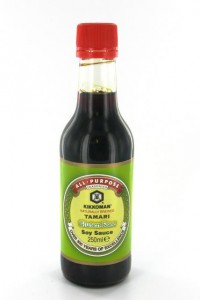
Originating in Japan, Tamari sauce is just a form of soy sauce that has always been made without wheat or anything else containing gluten.
Soy sauce is often made by fermenting a mixture of half soybeans and half wheat, but tamari sauce is usually made by fermenting just soybeans.
(Note, however, that there are some brands of tamari that contains wheat, such as the Kikkoman tamari soy sauce, which has both wheat and glucose in the ingredients!).
Tamari sauce is typically darker in color and has a richer, less salty flavor than your average soy sauce. Sometimes a little bit of alcohol is also added to tamari sauce to help preserve it.
Despite its slightly different taste and color, tamari sauce can be used in any recipe in place of soy sauce.
The word tamari is derived from the Japanese word, tamaru, meaning “to accumulate.” This is because tamari sauce is actually the run-off liquid produced while making miso (think miso soup served in Japanese restaurants).
Is tamari sauce paleo?
5 Ways to Get a Killer Body without Trudging through the Rain to an Expensive Gym

The most shocking news of the century…exercise is actually pretty good for you.
Yup, you can do it wrong or overdo it, but that’s more the exception than the rule. In particular, lifting weights and strength-training is seriously beneficial, no matter who you are and whether or not you want to look ‘muscular.’ Lean tissue is just healthy, period.
So do you know the #1 reason why exercise doesn’t work? Because you don’t do it consistently.
You get tired. You get bored. The gym is too expensive. It’s raining outside. Or Snowing.
And you bail.

